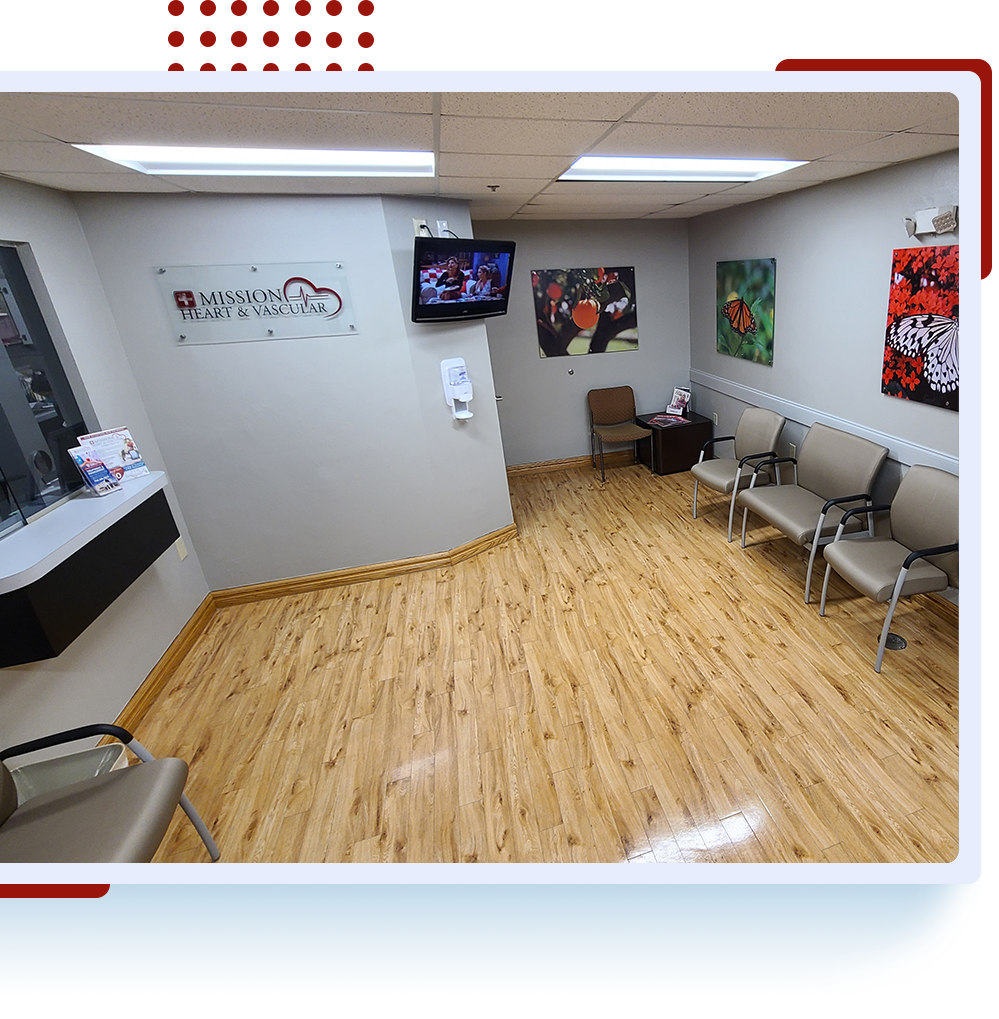Mission Heart & Vascular
Board Certified Interventional Cardiologists & Peripheral Vascular Disease located in Mission, TX

Specializing in Elective, Emergent, and Non-Emergent Surgical Procedures
You Need Most

Why
Mission Heart & Vascular
Mission Heart & Vascular in Mission, Texas, is a specialized practice where patients can benefit from exceptional care for a comprehensive range of cardiovascular disorders. Board-certified interventional cardiologists Gabriel Todd Faz, MD, FACC, FSCAI, and Kiran Mangalpally, MD, lead a team of professionals who devote themselves to relieving the burden of heart disease, improving the quality of life for people living with heart conditions, and helping patients avoid heart problems wherever possible using preventive cardiology and cholesterol management.
The practice is conveniently located adjacent to Mission Regional Medical Center and Expressway 83 to serve the surrounding Mission, McAllen, Alton, Palmview, La Joya, Penitas, Sullivan City, Rio Grande City, San Ysidro, and Roma communities. Mission Heart & Vascular has state-of-the-art cardiac catheterization facilities and radiology technology onsite, in addition to offering a range of cutting-edge diagnostics like EKG, echocardiogram, and stress tests.
Mission Heart & Vascular
Staff and Physicians

Gabriel Faz, MD
MD, FACC, FSCAI
Board Certified Interventional Cardiologist

Viola Ramirez
Practice Manager
Testimonials
Words From Our Happy Patients
 Marco Pina2023-07-08Dr. Faz takes the time to listen to all your concerns and answers all questions.
Marco Pina2023-07-08Dr. Faz takes the time to listen to all your concerns and answers all questions. Connie Soliz2023-07-07Dr. Faz and office staff exibit an exemplary standard of patient care. Dr. Faz is attentive, friendly, and personable. He took time to explain my situation clearly and the best way to move forward. I would highly recommend him.
Connie Soliz2023-07-07Dr. Faz and office staff exibit an exemplary standard of patient care. Dr. Faz is attentive, friendly, and personable. He took time to explain my situation clearly and the best way to move forward. I would highly recommend him. Robert2023-03-24Man! Super awesome Doctor Faz and the rest of the team. Extremely friendly and professional. I can’t wait for my next appointment.
Robert2023-03-24Man! Super awesome Doctor Faz and the rest of the team. Extremely friendly and professional. I can’t wait for my next appointment. Yolanda Olivarez2022-10-27So glad I was referred to this office. Dr. Faz and staff are real professionals. Made me feel so comfortable and at ease. I trust my heart to them as I do to God.
Yolanda Olivarez2022-10-27So glad I was referred to this office. Dr. Faz and staff are real professionals. Made me feel so comfortable and at ease. I trust my heart to them as I do to God. Jody Tittle2022-10-27Very happy I found this Heart Clinic. Being uneasy about doctor's visits especially a heart doctor I actually feel at ease when going to my appointments. From the front desk, nurse, manager, NP, and doctor I'm comfortable and relaxed when visiting for my appointments. Hope the current staff remains for years to come since I'll probably be going there for years!!!
Jody Tittle2022-10-27Very happy I found this Heart Clinic. Being uneasy about doctor's visits especially a heart doctor I actually feel at ease when going to my appointments. From the front desk, nurse, manager, NP, and doctor I'm comfortable and relaxed when visiting for my appointments. Hope the current staff remains for years to come since I'll probably be going there for years!!! Edna Flores2022-10-04Dr. Faz and his staff are very efficient and friendly. Thank you for listening and answering my concerns. God bless you all.
Edna Flores2022-10-04Dr. Faz and his staff are very efficient and friendly. Thank you for listening and answering my concerns. God bless you all. C Ardis2021-02-23Last Friday, I had the HeartSaver done, Which included the CT scan of my heart and an EKG. The process required very little time on my part, and the customer service at Mission Regional was outstanding. All of the employees were friendly and efficient. Shockingly, my results were ready yesterday (in ONE business day!!!!). I did not have to make--and pay for--an office visit to pick up my results, and there were no hidden costs. To pay $50 for both of these tests is an amazing deal. Best of all, I took a proactive step when it comes to my health. Preventive medicine is far less costly and far less painful than reactive medicine. I am so happy I had this done at Mission Regional!!!!Google rating score: 4.8 of 5, based on 37 reviews
C Ardis2021-02-23Last Friday, I had the HeartSaver done, Which included the CT scan of my heart and an EKG. The process required very little time on my part, and the customer service at Mission Regional was outstanding. All of the employees were friendly and efficient. Shockingly, my results were ready yesterday (in ONE business day!!!!). I did not have to make--and pay for--an office visit to pick up my results, and there were no hidden costs. To pay $50 for both of these tests is an amazing deal. Best of all, I took a proactive step when it comes to my health. Preventive medicine is far less costly and far less painful than reactive medicine. I am so happy I had this done at Mission Regional!!!!Google rating score: 4.8 of 5, based on 37 reviews

$50 Heart Saver CT currently available at the Mission Heart and Vascular clinic
We accept most major insurance plans







Mission Heart & Vascular
910 S Bryan RD, STE 103
Mission, TX 78572
Office Hours:
Monday – Friday : 8:00am – 5:00pmSaturday – Sunday : Closed
